The challenges of bringing Russian war crimes to justice
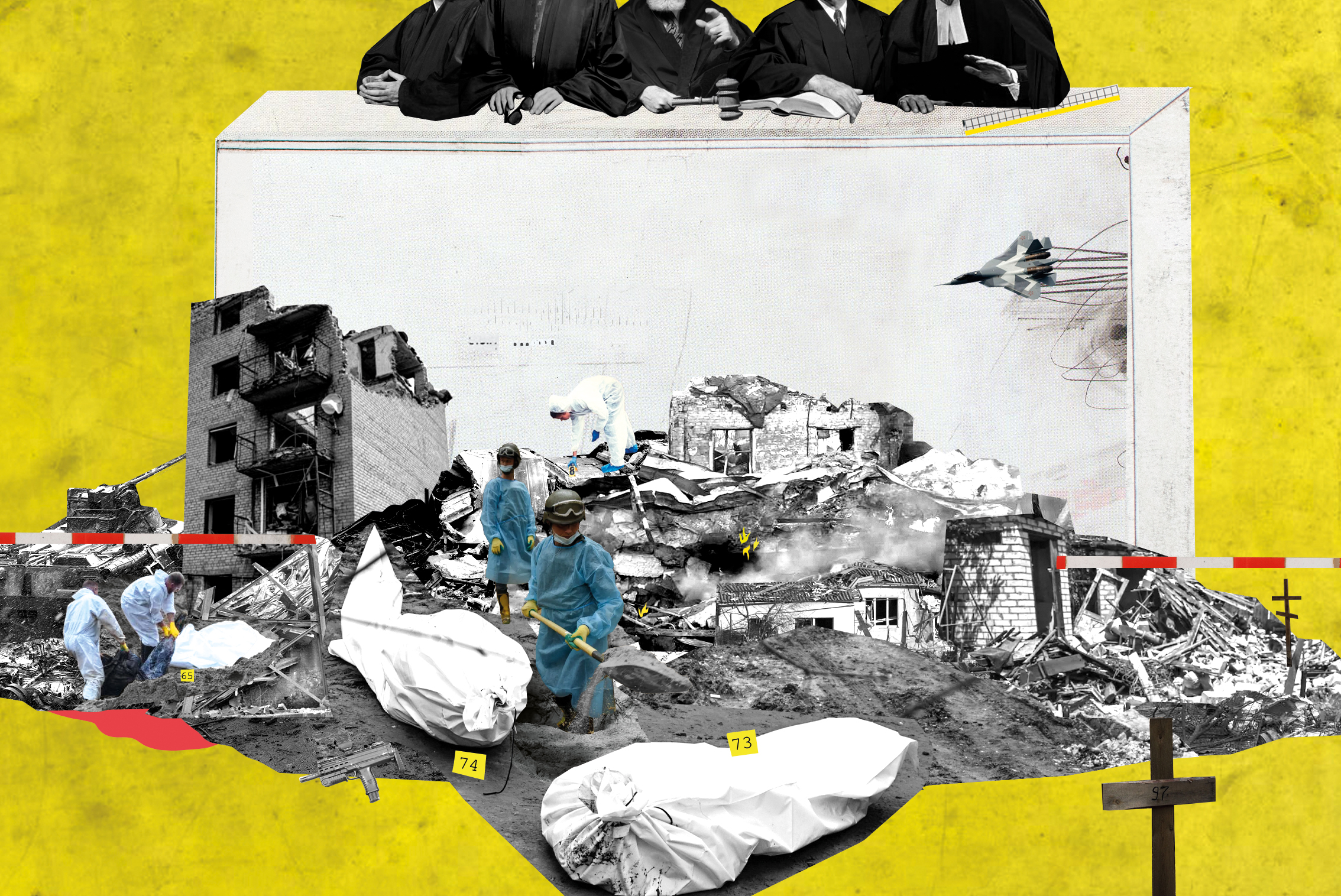
Debates are ongoing about the need for a war crimes tribunal to investigate atrocities in Ukraine. But justice also requires patience.
Ben Ferencz, 102, the last surviving prosecutor from the Nuremburg Trials, never thought he would see war in Europe again. After the Second World War, Ferencz helped to try the leaders of the Nazi regime. SWI swissinfo.ch journalist Elena Servettaz asked him how he sees the Russian attack on Ukraine.
“It’s difficult to say who a criminal is,” he said. “But to attack another nation, that’s certainly a war crime.” Should Russian President Vladimir Putin be brought before a court? “Whoever starts an illegal war – out of megalomania or whatever it may be – deserves to be treated as a criminal,” Ferencz said.
The brutality of the war in Ukraine is difficult to bear. Can it go unpunished? Can peace even be lasting if it’s not followed by justice? And can those responsible be pinned down? SWI swissinfo.ch journalist Elena Servettaz put these questions to various representatives of international justice.
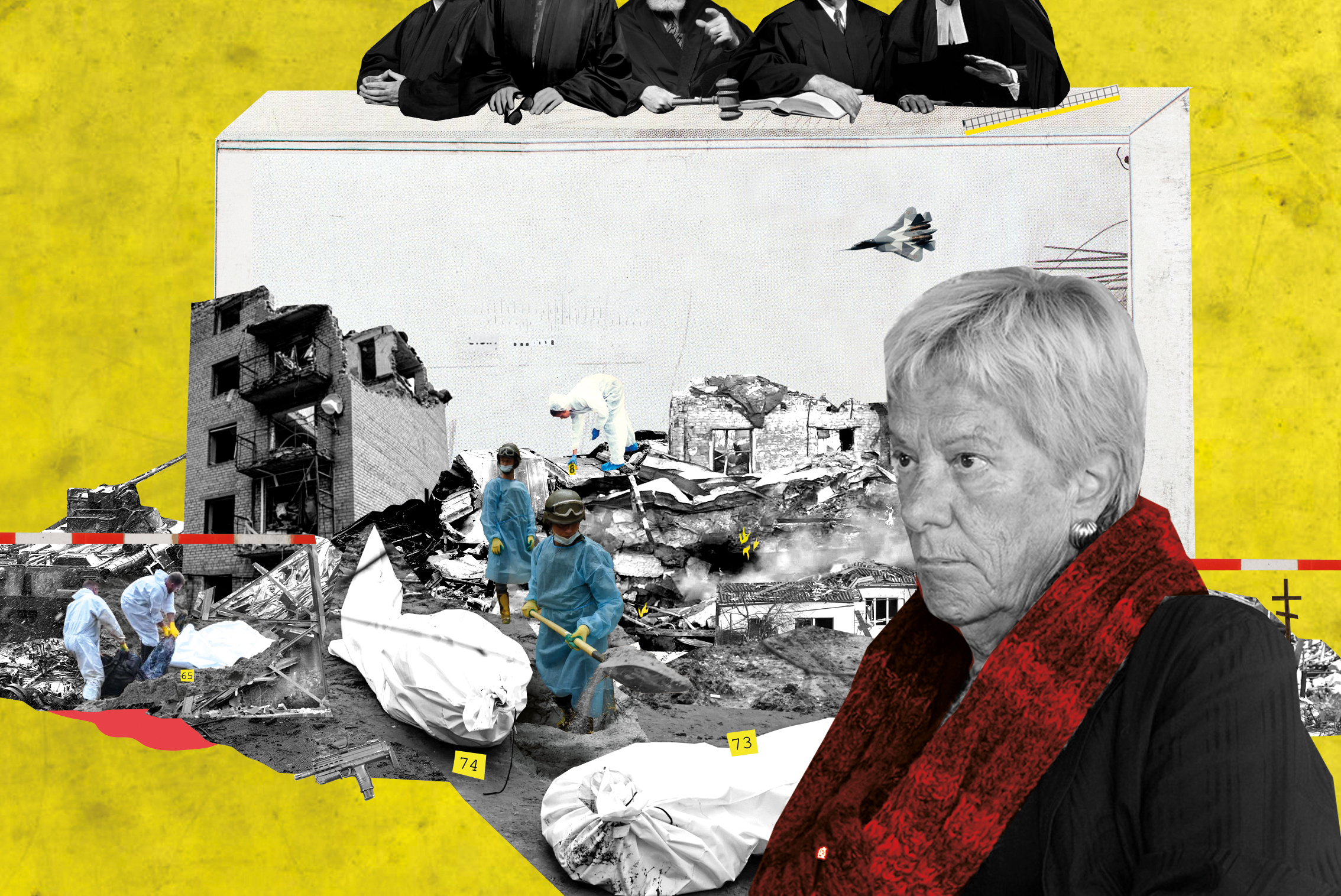
More
Carla Del Ponte: Putin’s crime of aggression ‘has already been proven’
Former Swiss federal prosecutor Carla Del Ponte investigated war crimes in Yugoslavia and Rwanda in her role with the UN. She agrees with Ferencz: Putin’s biggest crime was the invasion in and of itself. “He is a war criminal, without a doubt,” she says. However, a major challenge could be getting the Russian president into a court – especially since Russia’s veto on the UN Security Council makes a special tribunal unlikely.
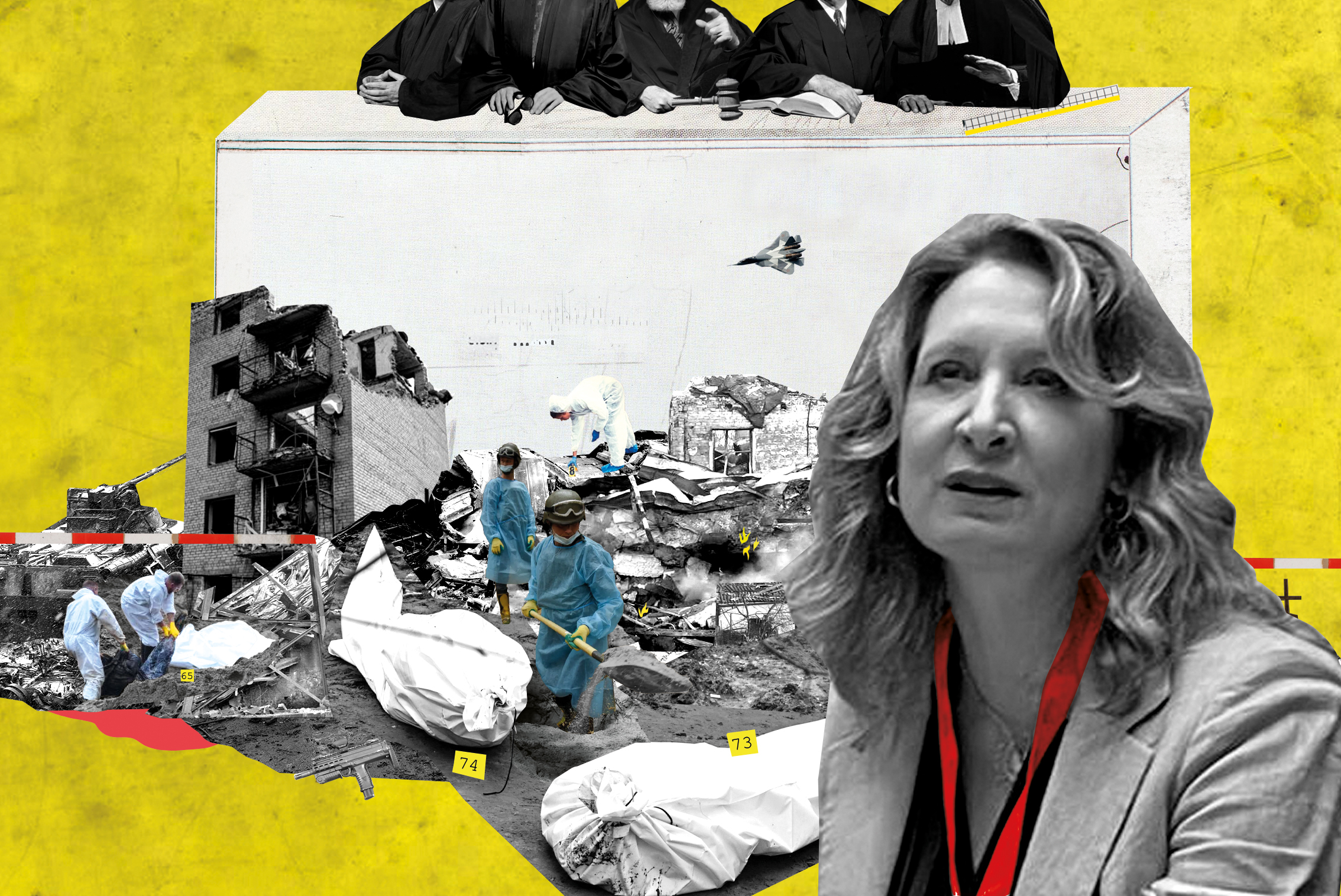
More
Beth Van Schaack: The war in Ukraine ‘badly calls out for justice’
Beth Van Schaack, US Ambassador-at-Large for Global Criminal Justice, raises another problem. “The architects of this campaign of atrocities are in Russia,” she says – and they can be detained only when they leave the country.
That will take time. And precisely this point is common to all our interviews with legal specialists: justice requires patience. The core of every prosecution case is built on hard evidence. As Geneva lawyer Philippe Currat explains, “crimes against humanity, war crimes and genocide are highly complex criminal acts. They are the result of many actions, carried out by many people”.
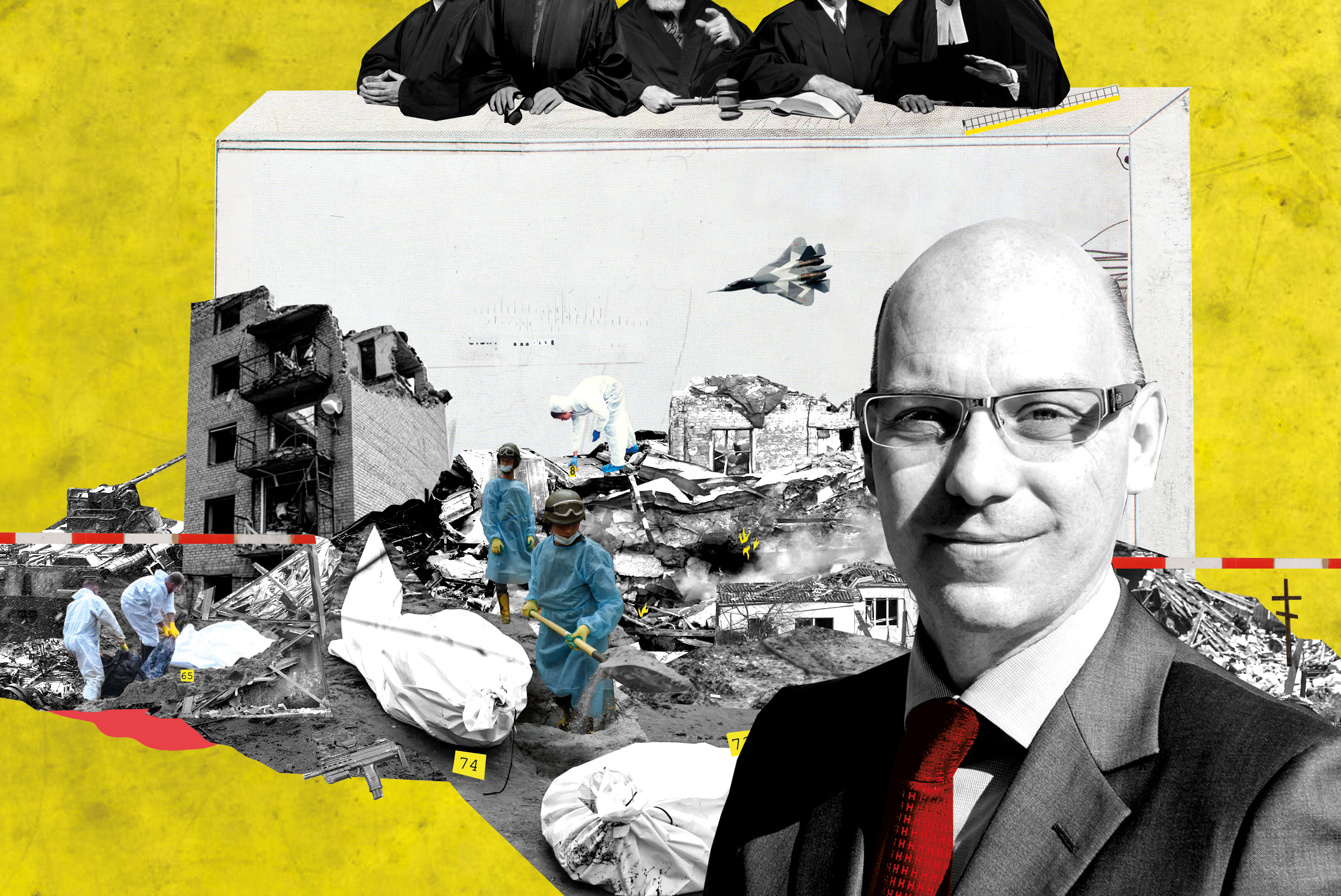
More
Philippe Currat: Putting Putin on trial is ‘bit of a fantasy’
Since June 2022 Switzerland has been gathering witness reports from fleeing Ukrainians, in order to be ready for any eventual trials or requests for legal assistance. The Swiss Office of the Attorney General has also set up a taskforce on Ukraine and Russia with a focus on international criminal law.
“Of course the time will come for justice, but when? And before which court?” asks lawyer François Zimeray, who has investigated various war crimes at the International Criminal Court in The Hague. He sees no chance for the time being of prosecuting Russian crimes at the international level. A tribunal organised by Ukraine itself, on the other hand, is fully legitimate.
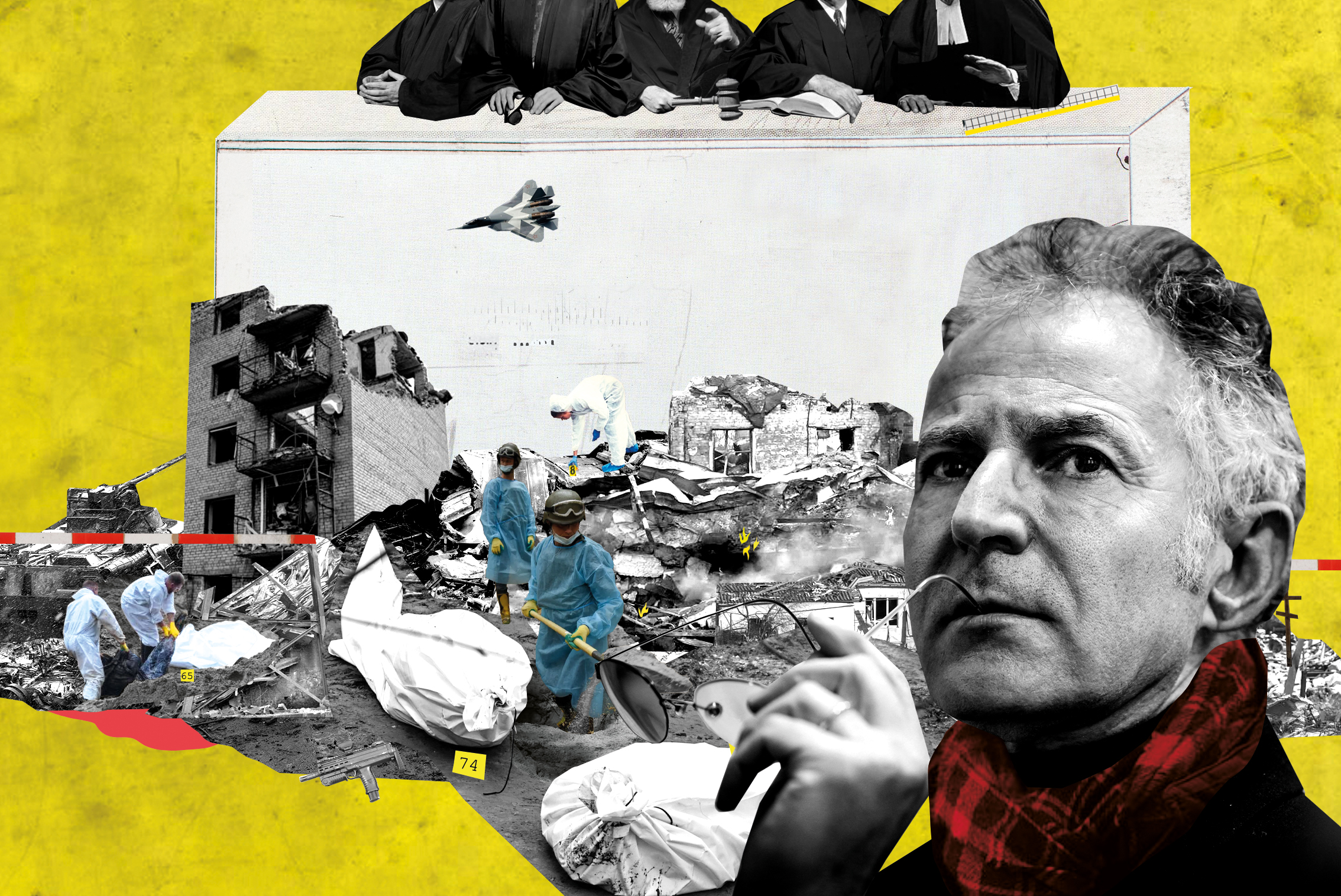
More
François Zimeray: ‘Can real justice exist without peace?’
Irwin Cotler is a former lawyer for Nelson Mandela and former Attorney General of Canada. He currently works with a network of NGOs trying to set up a special tribunal on Ukraine. He hopes Switzerland can play a part. “The international community did not act when Russia invaded Chechnya, nor when it marched into Georgia, nor when it annexed Crimea, nor when it bombed Syria,” Cotler says in an interview shortly to be published on SWI. This may have emboldened Putin in his decision to invade Ukraine.
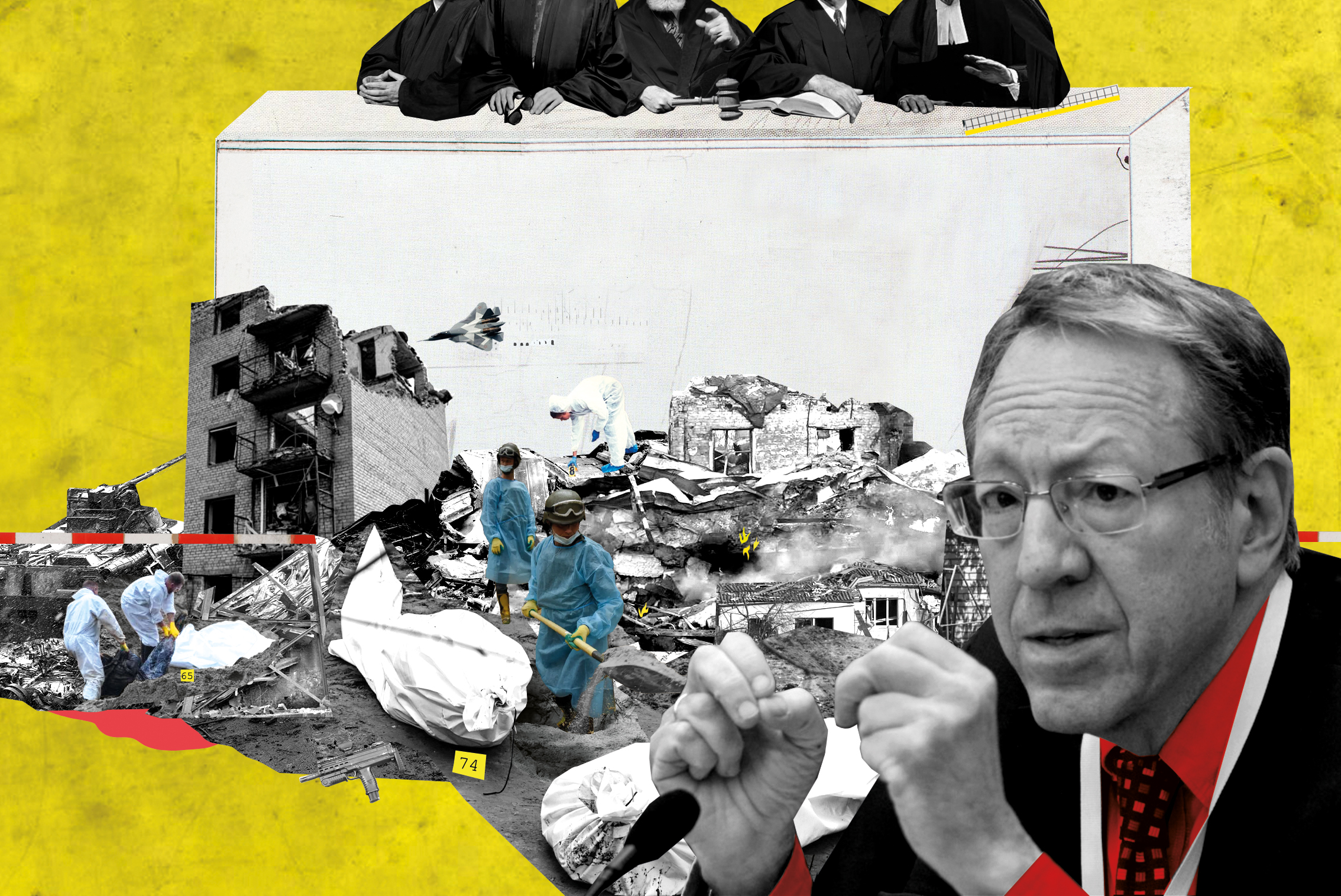
More
Irwin Cotler: ‘Russia is in standing breach of the Genocide Convention’
Cotler is the only expert interviewed in our series who sees the Russian aggression as a possible genocide, in part due to the “direct and public incitement to genocide”.

More
Explainer: International crimes and the Ukraine war
But what is genocide? And how are crimes of aggression defined by international law? Some atrocities are difficult to categorise clearly. In the final part of our international justice series, SWI swissinfo.ch journalist Julia Crawford looks at definitions of international crimes and some examples of how they have been tried in the past.
More

In compliance with the JTI standards
More: SWI swissinfo.ch certified by the Journalism Trust Initiative
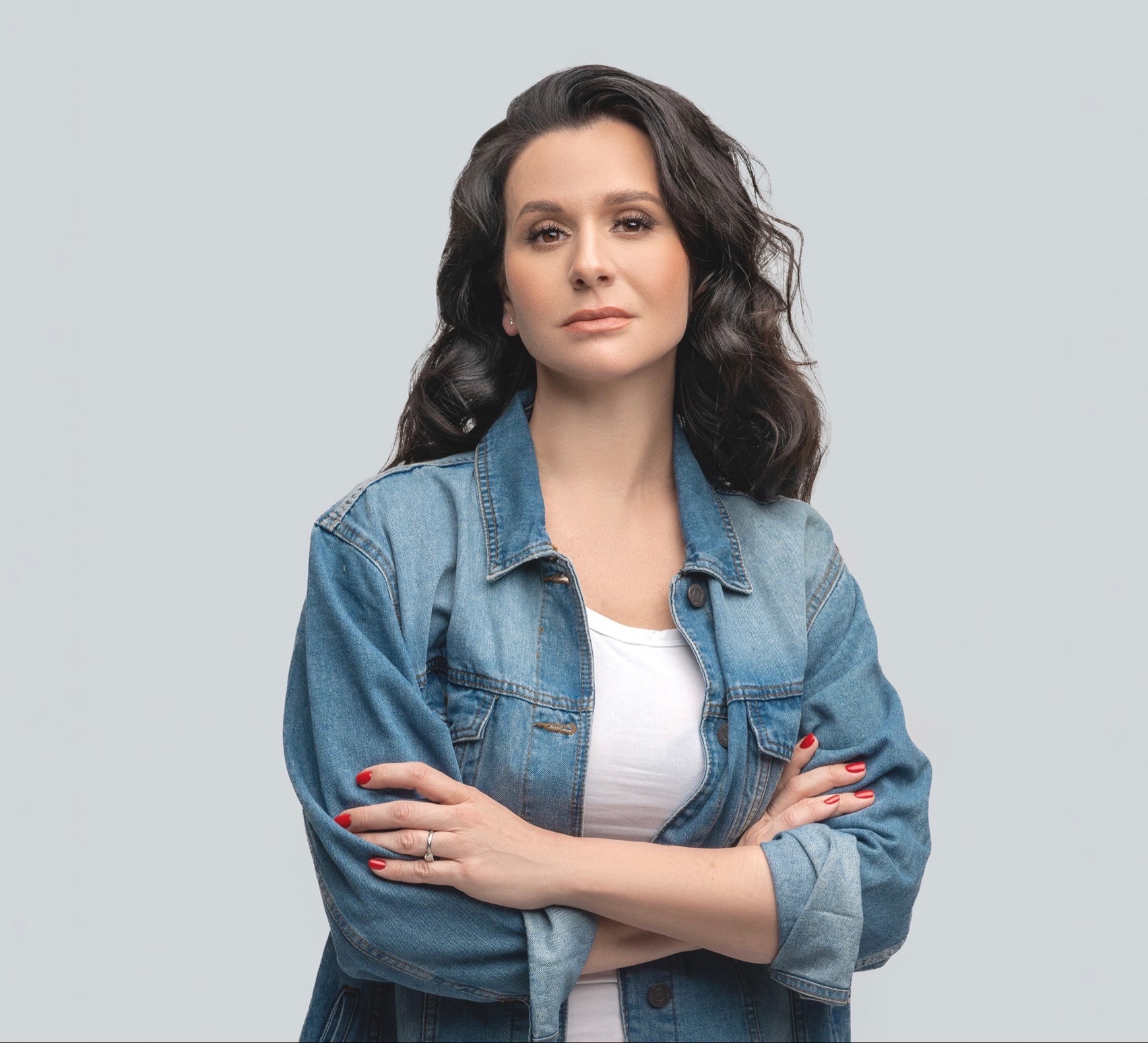
You can find an overview of ongoing debates with our journalists here . Please join us!
If you want to start a conversation about a topic raised in this article or want to report factual errors, email us at english@swissinfo.ch.